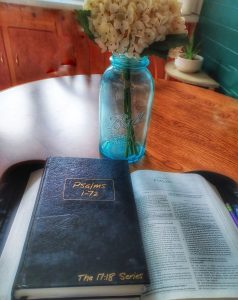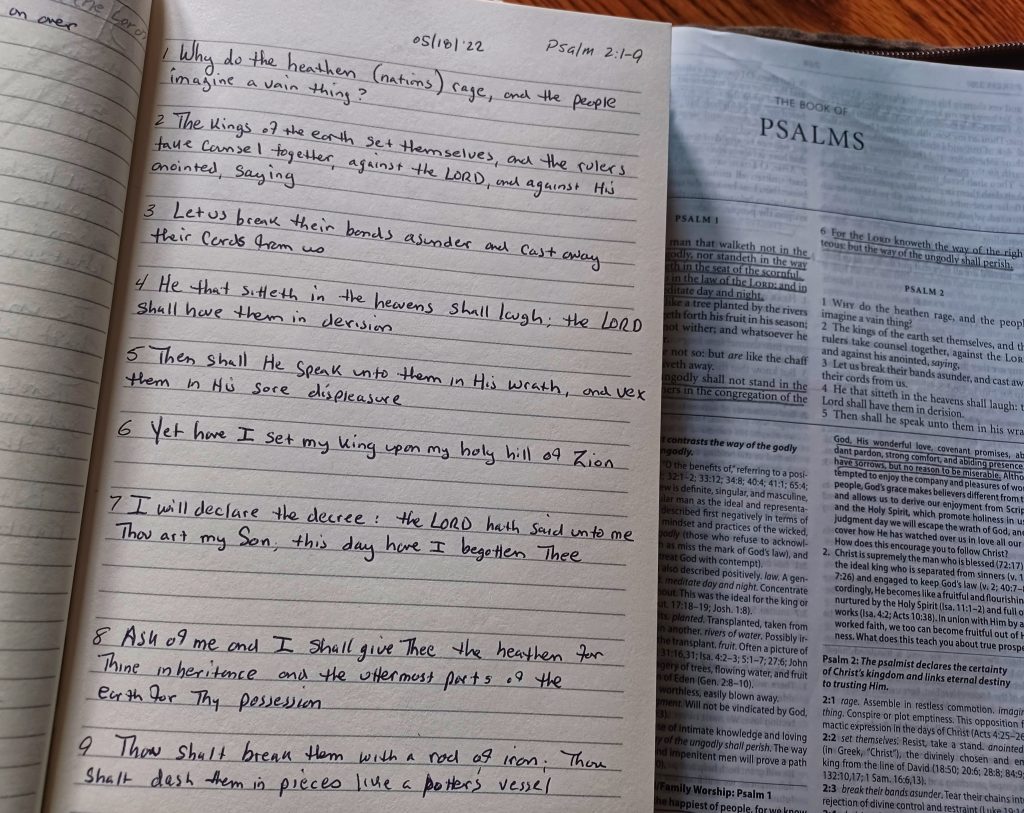Imagine … Sitting at a table with a portion of scripture on one hand and a pen and paper in the other, copying out each word, each line, verse by verse. This is no exercise for a medieval monk cloistered by candlelight in a dark monastery somewhere, but rather something a little more modern. Something I myself recently began.
 While the idea of copying out scripture is nothing new, the way I went about it was thoroughly modern. The method I used was the Journible way. These are simple yet innovative ways to go about studying scripture by writing it out. The concept is based upon Deuteronomy 17:18, in which Moses foretells of future kings and one of their duties is to write out the law of God by hand so they will know it and that it would be more personable to them .
While the idea of copying out scripture is nothing new, the way I went about it was thoroughly modern. The method I used was the Journible way. These are simple yet innovative ways to go about studying scripture by writing it out. The concept is based upon Deuteronomy 17:18, in which Moses foretells of future kings and one of their duties is to write out the law of God by hand so they will know it and that it would be more personable to them .
The Journible is innovative in the way it allows you to journal and copy the Bible (hence the name) and is available in various books of the Bible, Old and New Testaments. On the left side, there is blank space for you to journal your thoughts and occasionally a question to answer based upon a verse. On the right side of each page is space to write out the verses with ample space. The verses to write out are listed at the top of the page. All of this is found within a hardback book that will last a long time and will serve as a treasured heirloom to pass down to children and grandchildren.
Why did I decide to do this practice? Earlier in the year, I had felt led that I needed to dig into the Psalms a bit more, studying these inspired songs of praise. I began by looking at commentaries and books written about them but then later in the year I stumbled upon the Journible. Beginning in May, I decided to write out the Psalms. I had originally planned to write out a psalm a day as I came to it in my daily Bible readings. However, this proved to be difficult as I read faster than I can write. Nevertheless, I persevered and finished writing out the 72nd Psalm exactly six months later. Sometimes I would write out verses at 3 in the morning and sometimes late at night. Sometimes at home, but most often as I travel with work throughout different states. It quickly became a daily discipline alongside daily Bible reading .

Lest you think I am some sort of “super saint” by doing this, let me reassure you: This was a difficult exercise. There were some 17-plus-hour work days after which I didn’t know if I had time to read, much less to write out verses of scripture. Some days I could only write out one verse due to time constraints while other times I wrote out an entire psalm. This is the beauty of this system, as it is not a daily schedule. I knew that if I stopped even for a day that I would push it aside and it would be among the pile of things that I had good intentions for but didn’t complete (much like my great American novel I’ve been writing in my head for the last 20 years!). Trust me when I say if I can do it anyone can do it.
So what have I learned through the first half of this process of writing out the Psalms? I have come to appreciate the fact that we have a complete Bible in our language. I’m so thankful for the many men and women who have sacrificed both time effort and energy to make sure that we have God’s word in our native tongue in the past and for those who are making it possible today for all languages to know the wonderful truths of God’s word. I’d like to also think that it helped me to better handle God’s word as I speak and teach, knowing every “jot and tittle” are inspired.
Simply put, it has helped me to love God’s word and to desire to hide it in my heart even more.
